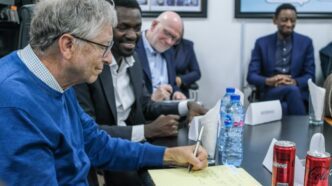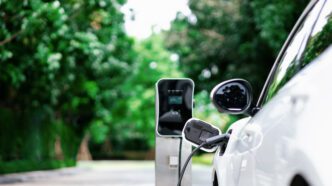In power-starved Nigeria, the solar energy boom is no longer just about going green—it’s about survival. As grid reliability crumbles and fuel prices skyrocket, solar power is becoming the smarter, cheaper choice. Riding this wave is Arnergy, a cleantech startup that just secured an $18 million Series B funding round extension, attracting strong investor confidence once again.
The boost includes a fresh $15 million injection on top of a $3 million tranche last year. It reflects growing demand for affordable, reliable power alternatives across the country.
Fuel Subsidy Removal Sparks Demand
Much of this shift stems from a major policy change in May 2023 when Nigeria ended its long-standing fuel subsidy. That decision caused petrol prices to shoot up by nearly 500%. What used to be the cheaper option—running diesel or petrol generators—suddenly became a costly burden for millions of Nigerians.
Arnergy’s value proposition evolved with the times. Founder and CEO Femi Adeyemo explained that the company initially promoted solar as a way to ensure uninterrupted power. Now, it’s all about the savings. Customers can cut their power costs significantly compared to using the grid or fuel generators.
Launched in 2013, Arnergy serves a wide range of sectors—education, agriculture, healthcare, hospitality, and finance—with solar systems that keep the lights on and bills down. Backed by Bill Gates’s Breakthrough Energy Ventures, which led its $9 million Series A in 2019, Arnergy is redefining energy access in Nigeria.
Lease-to-Own Gains Traction
A major driver of Arnergy’s recent growth is its lease-to-own product, Z Lite. Instead of buying solar systems upfront, customers now pay monthly over five to ten years—eventually owning the system outright.
This model is gaining ground fast. While outright purchases accounted for 60% to 70% of Arnergy’s revenue in 2023, they dropped to just 25% last year. In contrast, lease-based systems surged as customers looked for ways to escape rising grid tariffs and fuel costs.
Adeyemo shared a striking example: some customers used to spend ₦200,000 ($125) per month on power. With Arnergy, that drops to around ₦96,000 ($60). The savings add up fast, especially over a five-year period.
As more users realize the financial advantage, many are returning to double their system capacity—or go fully off-grid. From 2023 to 2024, Arnergy tripled its lease customer base and expects to grow it 4–5x this year. Its Naira-based revenue is also on track to quadruple, although currency devaluation has kept dollar earnings flat.
To counter this, Arnergy is exploring FX revenue through B2B2C deals priced in dollars, and eyeing expansion into Francophone Africa.
Arnergy is Scaling Up—Despite New Challenges
So far, Arnergy has deployed more than 1,800 systems across 35 Nigerian states, providing 9MWp of solar and 23MWh of battery storage. With new funding led by Nigerian private equity firm CardinalStone Capital Advisers (CCA), the company aims to scale to over 12,000 installations by 2029.
Investors in the latest round include Breakthrough Energy Ventures, British International Investment, Norfund, EDFI MC, and All On. To hit its ambitious goals, Arnergy is shifting from direct sales to a partner-driven model. It plans to work closely with business clients and expand through physical retail outlets outside of Lagos.
Additionally, Arnergy is in talks to raise local debt financing from Nigerian banks and development finance institutions (DFIs) to support new offerings, including energy-as-a-service (EaaS) for multinational clients.
But a recent policy proposal could shake things up.
In March 2025, the Nigerian government revealed plans to ban solar panel imports in a bid to boost local manufacturing. While the goal has merit, industry experts—including Adeyemo—warn that it’s too soon.
Nigeria currently lacks the infrastructure, capital access, and supply chain maturity to meet domestic solar demand through local production alone. A premature ban could halt progress and hurt millions of Nigerians relying on solar as their main power source.
Adeyemo supports the idea of local production but stressed that capacity-building must come first. He believes the country needs a stable policy environment, better funding for local manufacturers, and several years of preparation before phasing out imports.
“We believe in local manufacturing, but let’s do it right,” he said. “If we rush it, we risk setting the industry—and the people—back.”













